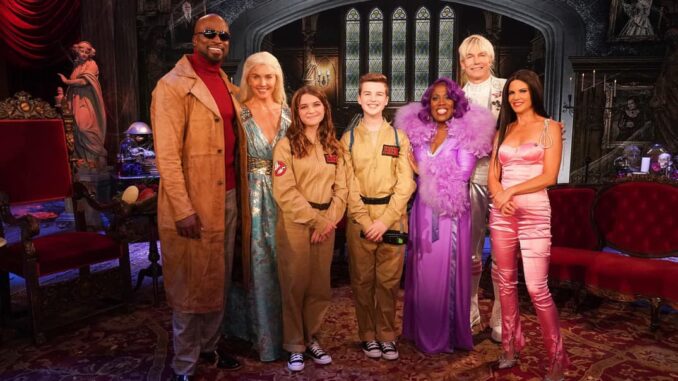
As the seventh season of Young Sheldon approached, fans couldn’t help but feel a shadow looming over the Cooper household. George Cooper Sr., the pillar of the family, was on the brink of a fate that had long been whispered about: death. Unlike other family dramas, where grief might unfold slowly, Young Sheldon faced the unique challenge of weaving this inevitable tragedy into a story already running against time. With only 14 episodes left to conclude its journey, the series had to be careful — a misstep could weigh down its final act.
For years, George’s presence had been defined more by memory than by on-screen action. In The Big Bang Theory, he was the father Sheldon spoke of in anecdotes, a man whose absence shaped Sheldon’s upbringing. Yet in the prequel, George was more than a ghost in someone’s memory; he was a flawed but devoted father, a coach, a husband — a real man whose life and choices left an imprint on every corner of the Cooper home. That made the task of saying goodbye even harder.
Hints of George’s fate had been sprinkled through the seasons: his health scares, his lifestyle choices, and subtle nods from Lance Barber himself, who expressed sadness over his character’s impending absence. Even the anticipation of Mandy and Georgie’s upcoming spinoff made it clear: the Cooper family’s story was moving toward a new chapter, one defined by loss and the resilience that would follow.
The timing of George’s death was delicate. The writers knew that too early, and the grief could overshadow the final episodes; too late, and the series wouldn’t have room to show its impact. The solution? A middle-of-the-season departure, paired with a subtle time jump. Evidence of this was already visible — Meemaw’s house, devastated in the previous season, had apparently been rebuilt, hinting at the story moving forward without dwelling endlessly on the immediate aftermath.
This approach allowed Young Sheldon to honor George’s death without letting it consume the show. It created space for the other arcs to breathe: Sheldon’s graduation from East Texas Tech, his acceptance to Caltech, the blossoming of Georgie and Mandy’s storyline, and even the echoes of family dynamics that would eventually lead to Sheldon’s life in Pasadena.
George’s death was more than a plot point; it was a turning point. It reframed the Cooper household, tested the bonds between mother, children, and extended family, and set the stage for Georgie’s growth into a figure of responsibility and leadership. By handling it thoughtfully, the show avoided the trap of becoming a story defined by grief, instead transforming it into a narrative about resilience, memory, and the enduring love of a family.
As fans watch the final season unfold, George’s absence will be felt — yet in the careful, deliberate storytelling of Young Sheldon, it will also serve as a reminder of why the Cooper family’s story was always about more than laughter: it was about love, loss, and the moments that shape us long after the people we cherish are gone.
